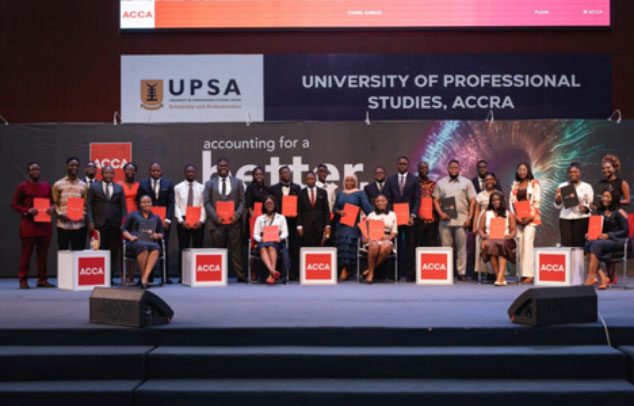The Association of Chartered Certified Accountants (ACCA) has reinforced its commitment to equipping finance professionals with future-ready skills by hosting ACCA Orbit 2025, a summit focused on the role of artificial intelligence (AI) in shaping the accountancy profession.
The event, held at the UPSA Auditorium under the theme ‘AI and the Future of Work’, brought together industry experts, business leaders, and technology professionals to discuss AI’s impact on finance and the evolving responsibilities of accountants.
In his opening remarks, Col. Nobel Carl Doe Dei-Alose, Chairperson of ACCA Ghana, emphasised the urgency for accountants to develop AI competencies to remain relevant. He warned that those who fail to adapt risk being left behind as AI becomes increasingly integrated into financial processes.
“We need to support understanding towards engagements in functions that we should be prepared to handle. As we move forward, you will notice that you cannot avoid them,” he stated.
He further cautioned that professionals who do not grasp the fundamentals of the evolving business environment may struggle to reconcile traditional knowledge with modern industry demands.
A panel discussion on ‘Will AI Take My Job?’ addressed concerns about automation replacing accountants. Panelists highlighted AI’s role as an enabler rather than a disruptor, stating that the profession is shifting from data processing to advisory functions.
Akwasi Adu Boahene, CEO of Fidelity Securities, underscored the need for accountants to embrace this transformation, stating, “The future of accountancy is no longer about just reporting numbers but about deriving strategic value from them. Those who can interpret financial data to inform business decisions will remain indispensable.”
While he reasoned that AI would lead to enhanced accuracy and consequently trust in output of professionals, he, however, cautioned against the potential biases. “Trust and accuracy are the foundations of accounting. AI, when properly implemented, can enhance trust by improving data analysis and reducing human error but there must be governance structures in place to ensure AI is used responsibly. Without proper oversight, AI could be misused, eroding the very trust it seeks to build,” he explained.
Winifred Opoku-Baffour, Assistant Vice President, Rewards and Governance Lead at Absa Bank highlighted AI’s potential to enhance efficiency while cautioning against fears of job losses.
“It is normal for people to be afraid, but that fear comes from a misunderstanding of AI’s capabilities. AI cannot replace fundamental accounting skills. Instead, it will help us be more efficient. The key is to embrace it as an enabler, not a threat,” she argued.


